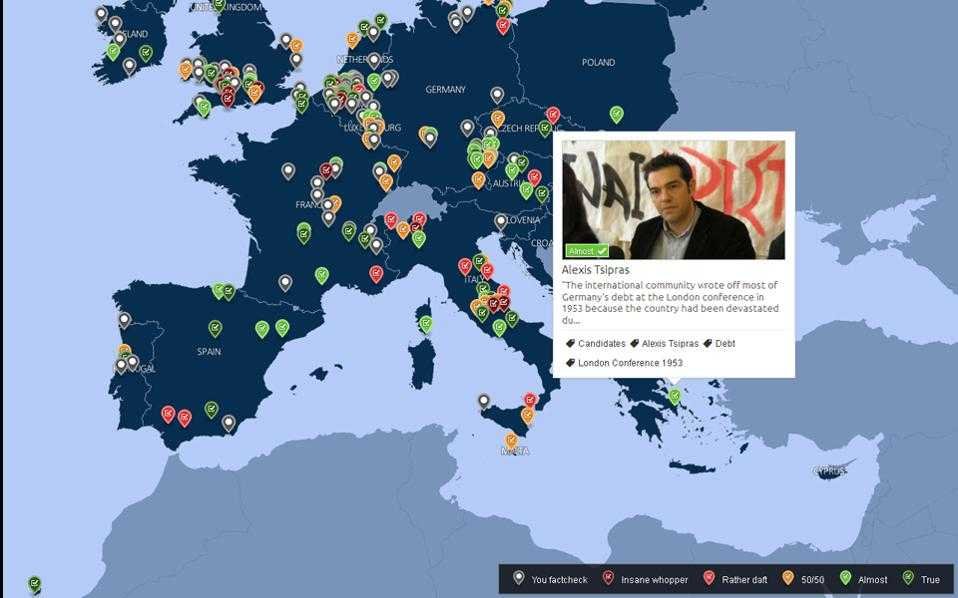FactcheckEU. The Euractiv.com European News website publishes an article titled "Website to Check Allegations of Election Campaigns for European Elections".

According to the report, the FactcheckEU initiative will check Community documents to see how true the claims of European politicians are in view of the European elections in May.
The publication quotes as an example the misrepresentation of the President of the European Parliament and candidate for the European Commission's presidency, Martin Schulz, of Europe's losses from tax evasion.
Specifically, the German politician said in an interview in Czech TV that "2 trillion are lost. euro" due to tax evasion across Europe. According to the Commission's estimates, this amount amounts to 1 trillion. euro.
This was not the first time that politicians used the wrong data during the duration of their pre-election campaign for the European elections, the publication notes.
For this reason, the website FactcheckEU will systematically control such inaccuracies by inviting politicians to be properly informed before addressing European citizens.
The cofounder the site's Pietro Curatolo told Euractiv that the "truthometer" will gather politicians' speeches and statements with the aim of holding them accountable for what they say. "We want to make sure that when politicians talk, they don't just spout numbers," he noted. He had taken a similar initiative in Italy where "politicians often say nonsense. We wanted to see if what the politicians were saying was real."





